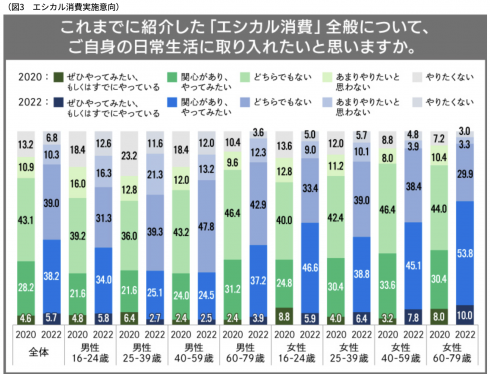Investing in Stories and Guesses: What are the New Consumer Behavior Trends?

Introduction
Hello. My name is Oyama, and I am a consultant.
Patterns of consumer behavior have changed over time. In recent years, one of these changes has been the interest in the "story" of products and spending on guesses (favorite people and brands). Here we will explore these two trends.
Consumption for the story: interest in the story behind the product
Consumers are increasingly interested not only in the value of the product itself, but also in the story and process behind its creation. Detailed information about the product, such as where the product's materials came from, how it was made, and who made it, enhances the product's appeal.
Crowdfunding sites, for example, allow consumers to be involved from the product idea stage and be part of the development process. This allows consumers to become part of supporting a new idea or vision, rather than simply purchasing a product.
elife the roundtable discussions that include people from the development team are very popular at the community members-only live events held by the "mere old man" and other events. It has been found that when people hear about how the product was made, what kind of people were involved, and what kind of hard work went into making it, the emotional value of the product increases and people recognize it as "something special" and become more attached to the product, in addition to its functional merits and demerits.
Furthermore, there is a growing trend where "social significance" is linked to consumption behavior, not just "development story".
I am ashamed to admit that I had a prejudice that younger generations, especially Generation Z, were more aware of these trends and that they were lagging behind as their generation grew older. In fact, however, Dentsu Inc.'s "Ethical Consumption Awareness Survey 2022" shows that awareness has increased in all generations compared to two years ago.
Spending on guesses: investing in and supporting individuals
A "guess" is a passionate support for a favorite person, brand, or content. Spending on that guess is a means of embodying the love for that person or brand.
In the music industry, for example, fans directly support their favorite artists by purchasing concert tickets and collecting official merchandise. Such actions mean more than just purchasing merchandise. This is because it is strongly associated with affection for the guesser and feelings of support for his or her activities.
It can be said that the current "guessing game" is characterized not only by the enjoyment of the music, but also by the "growth of the artist (in terms of influence and popularity) as a result of one's support, and the enjoyment of reliving even that process together with the artist.
For example, Youtubers and Vtubers today earn income not only by subscribing to paid channels, throwing money for LIVE streaming, and selling goods, but also by "subscriptions for activity fund support". There are a variety of courses available, ranging from 300 yen per month to tens of thousands of yen per month for some people, each of which comes with a return gift.
Summary
These two trends in consumer behavior indicate that consumers are not merely purchasing products, but are also becoming interested in the background and value of those products, and are also engaging in consumer behavior as a means of self-expression and a sense of belonging. Companies and creators must understand this new trend in consumer behavior and develop and market products in response to it.
Achieve results with "minimum investment and effort.
Cross-border e-commerceOne-stop shop for services




